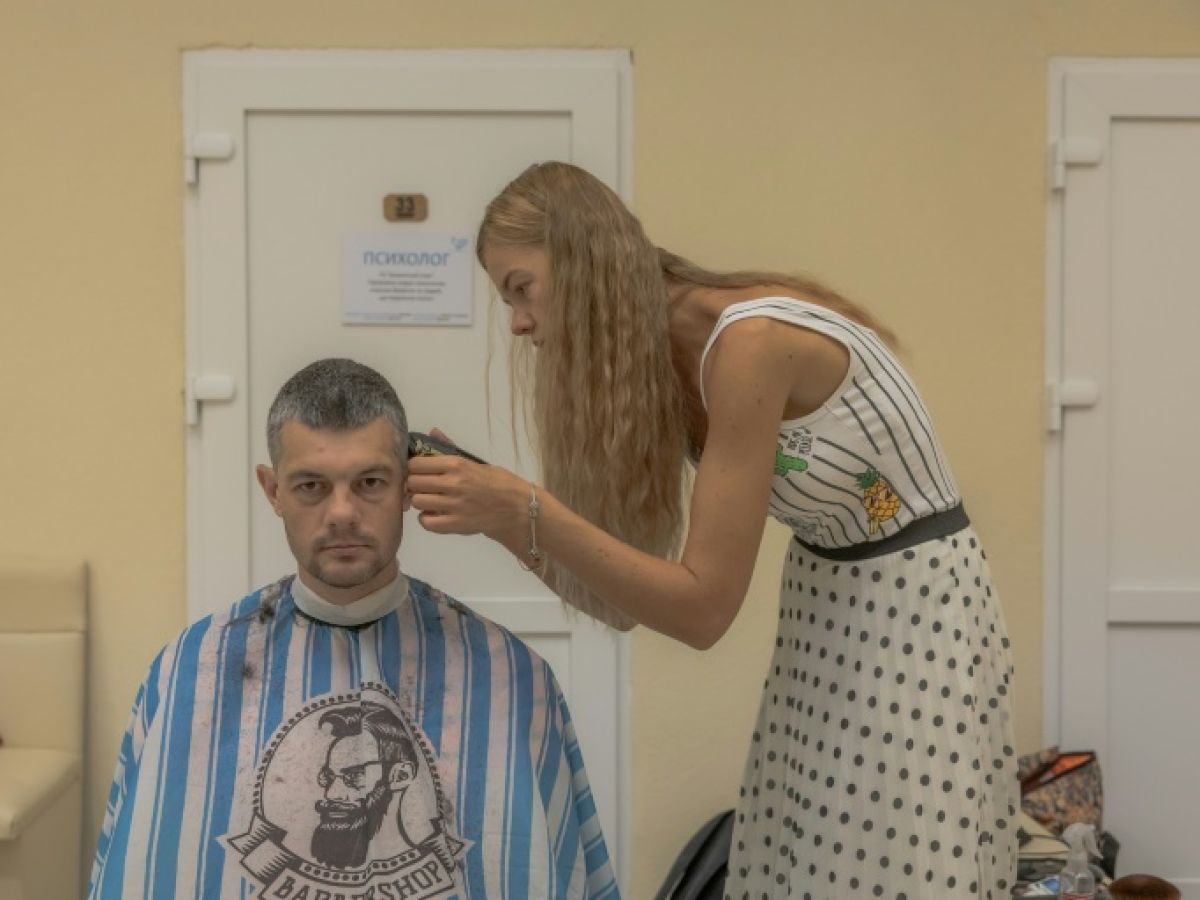As the clippers run over Igor's graying head, he closes his eyes, relaxed. Just a few months ago, the buzzing of the machine meant a beating by Russian guards.
A soldier in the Ukrainian Kraken battalion, Igor Chychko, 41, was captured on May 22, 2022, three months after the start of Russia's invasion of Ukraine, only to be released two years later, in May 2024, as part of a prisoner exchange.
If the sight of the razor reminds Igor of his detention, it is because "every week, we had 10 minutes to shave the 15 people in our 25m2 cell."
For an unshaven head, the guards would electrocute them or hit them on the calves, he recounted during a meeting with AFP on August 29.
Among the 3,672 Ukrainian prisoners released, many, like Igor, suffer from post-traumatic stress disorder.
According to a United Nations report from March 2024, the practice of torture and ill-treatment inflicted on prisoners of war in Russia is “widespread and systematic”, leading to psychological and physical after-effects.

But there, sitting in a hairdresser's chair, Igor smiles, enjoying a rare moment of relaxation during which he will forget the "flashes" of the abuse he suffered.
A parenthesis that he owes to a beauty salon that the Lissova Poliana Mental Health Center (La Clairiere) organizes every week, where he was placed in convalescence during the summer.
Here, broken soldiers fight the trauma that eats away at them.
This former Soviet sanatorium in kyiv, converted into a clinic, treats about a hundred patients through relaxation workshops and psychological follow-up. A drop in the ocean, while 9.6 million Ukrainians are in a situation of psychological trauma, according to the WHO.
"I am gray."
Scissors in hand and contagious smile, Ioulia Pouzanska no longer counts the heads she has styled, damaged from the inside by death for too long or torture endured. For her, the soldiers do not come "only for the haircut", but above all to reintegrate "the normality that escapes them".

“Getting your hair done is realizing that you’re still the same person,” says the 33-year-old beautician.
"It's a small step that brings them closer to life before" the trauma.
"Many of them no longer speak or do not want to speak," explains Yulia about the newly arrived patients, "they are afraid of this world."
In captivity, Igor lost 45 kilos, his hearing and his hair became more salt than pepper. Above all, he lost his social fiber and must relearn family life, "getting used to other people again," he says gloomily.
"I became grayer, both outside and inside."
The fault lies with the abuse inflicted by his jailers who bludgeoned his mind with the grandeur of "eternal Russia", predicted the annexation of Poland by Moscow or wanted to see France as a "Russian colony", continues the ex-prisoner.
If Igor contradicted them, he would be beaten naked and given a hail of blows from batons.
"This haircut goes well with the shape of your head," says a cheerful Yulia, contrasting with the heaviness of the atmosphere.
In his hands, Igor gets used to physical contact again, to feeling the fingers on his head and neck: "good vibes," he says, "I'm learning to talk."
Igor says he has to relearn normality: "I even forgot how to plug in a phone charger."
– “I have to survive” –
As the line of patients lengthens to pass through Yulia's magic fingers, the monastic atmosphere lightens and conversations become livelier.
Amidst the gruff beards, the eyes are firm and soothed despite the pale neon lights of the hall and the techno blaring from cheap speakers.
"In the trenches, we are animals, here, we become men again," one of the soldiers treated at Lissova Polyana told AFP.

"They tell us about their lives because they have no one to tell," explains Yulia, "sometimes some things are horrible."
After the session, with embarrassed smiles, the soldiers parade to offer the hairdressers coffee or cakes stolen from the Center's canteen. So many offerings that replace the words stuck in their throats, according to Yulia. "For them who have known hunger at the front, food has great value."
Although she considers herself a bit of a "psychologist", the young woman fully recognizes her limits, as when she remembers a 21-year-old man with dull eyes.
"When I asked him what he planned to do after the war, he remained silent and just kept telling me 'I have to survive'."
Most of the soldiers AFP met at the hair salon will be treated for a few weeks before returning to the front.

